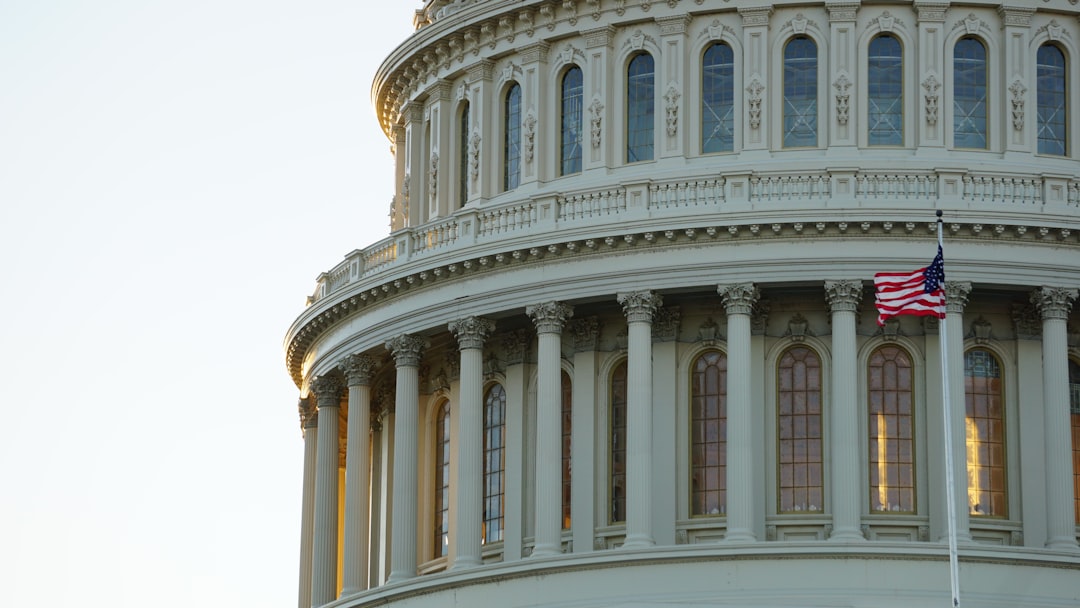Spam calls pose significant risks in financial services, from identity theft to operational disruptions. Financial institutions must combat this with stringent anti-spam measures and adhere to District of Columbia (D.C.) regulations. The DC Office of the Attorney General (DC OAG) strictly regulates spam calls, fining non-compliant businesses heavily. Staying informed requires consulting a lawyer specializing in D.C.'s spam call laws. Financial institutions nationwide are taking proactive steps, using advanced technologies and legal collaborations to protect customers and operations. Partnering with a lawyer for spam call DC helps manage risks, ensures compliance, and strengthens customer relationships.
“In the dynamic financial sector, the rise of spam calls has emerged as a significant challenge, impacting businesses and their interactions with clients. This article explores the intricate relationship between financial services and spam calls, focusing on the stringent regulations in Washington D.C. We delve into the legal framework, its implications for industry practices, and the proactive measures taken by financial institutions. Additionally, we offer insights from legal experts specializing in DC’s spam call laws, providing a comprehensive guide for businesses seeking to navigate this complex landscape, especially with the assistance of a lawyer for spam call DC.”
Understanding Spam Calls: Definition and Impact on Financial Services

Spam calls, or unsolicited telephone marketing calls, have become a pervasive issue in the financial services industry. These calls, often automated and targeting specific demographics, can range from harmless promotional messages to invasive and fraudulent attempts. For financial institutions, distinguishing legitimate customer interactions from spam is crucial to maintain compliance with District of Columbia (D.C.) regulations and protect their clients’ interests.
The impact of spam calls on financial services is significant. They can disrupt customer service operations, lead to identity theft, and cause substantial financial losses. Moreover, they erode consumer trust in the industry. Financial institutions must implement robust anti-spam measures, such as caller ID verification, automated call blocking systems, and employee training, to mitigate these risks. Consulting with a lawyer specializing in spam call regulations in D.C. can help organizations navigate legal complexities and ensure their practices align with the region’s stringent consumer protection laws.
The Legal Landscape: DC Regulations and Their Effect on Industry Practices

The legal landscape surrounding spam calls, particularly in the district of Columbia, is heavily regulated to protect consumers from unsolicited and deceptive phone marketing practices. The Consumer Protection Division of the District of Columbia Office of the Attorney General (DC OAG) plays a pivotal role in enforcing these regulations. Businesses offering financial services must adhere to strict guidelines when making automated telephone marketing calls, often referred to as spam calls. These rules include obtaining prior express written consent from consumers before initiating such calls and providing a clear and conspicuous opt-out mechanism during each communication.
A lawyer for spam call DC can guide businesses through these intricate regulations to ensure compliance and mitigate potential legal repercussions. Non-compliance may result in substantial fines, damaging the reputation of financial institutions and their affiliates. As the legal framework continues to evolve, staying informed about DC’s latest regulations is crucial for any organization operating within its jurisdiction, especially those in the financial services sector.
How Financial Institutions are Addressing Spam Call Concerns

Financial institutions across the nation are increasingly recognizing the detrimental impact of spam calls, particularly on their customers and operations. In response to growing consumer complaints and regulatory scrutiny, many banks, credit unions, and other financial service providers are adopting proactive measures to combat these unwanted phone communications. These efforts involve implementing robust anti-spam technologies, such as advanced call blocking systems and automated screening tools, to identify and filter out suspicious or fraudulent calls.
Moreover, financial institutions are fostering partnerships with legal experts specializing in spam call regulations, like a lawyer for spam call DC, to ensure compliance with local and federal laws. This strategic collaboration helps them stay abreast of evolving legislative frameworks and implement effective policies to protect consumers. By addressing spam call concerns head-on, these institutions aim to enhance customer satisfaction, safeguard sensitive information, and maintain the integrity of their services in today’s digital landscape.
A Lawyer's Perspective: Navigating DC's Spam Call Laws and Supporting Financial Service Businesses

In the realm of financial services, adhering to anti-spam regulations is paramount to maintaining consumer trust and operational integrity. From a lawyer’s perspective, navigating Washington D.C.’s stringent spam call laws can be complex, particularly for businesses operating within this dynamic legal landscape. However, with strategic guidance from a specialist lawyer for spam call DC, financial institutions can effectively manage risks associated with telemarketing practices.
Legal experts play a crucial role in supporting these businesses by interpreting and applying the region’s strict privacy laws to their marketing strategies. This includes ensuring compliance with do-not-call lists, providing clear opt-out mechanisms, and implementing robust procedures to prevent unauthorized calls. By partnering with such lawyers, financial service providers can safeguard their operations, maintain regulatory adherence, and foster healthier relationships with their customers in the long term.






